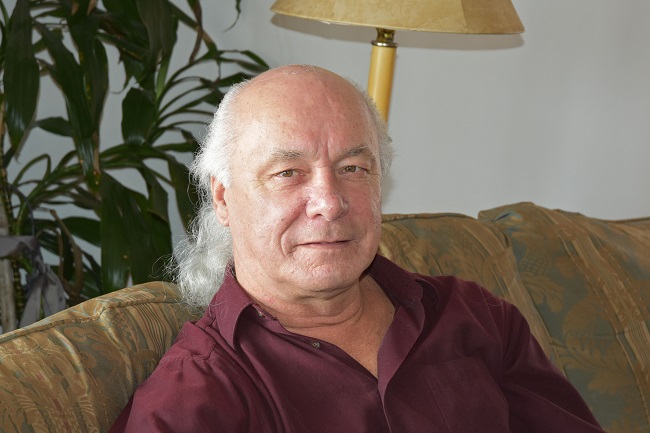Former Nipissing Warrior and Elder kicks off documentary premier as Master of Ceremonies

By Kelly Anne Smith
NIPISSING FIRST NATION—Being a Nipissing Warrior hockey player taught Elder John Sawyer life lessons. For Sawyer, the value of the experience was not about a hockey game—it was about community.
With the Nipissing Warriors documentary, Sawyer says that what we do now is move our history to the next generation.
“When you tell your story, you have to know your history,” stated Sawyer. “Or you don’t know where you are coming from or you don’t know where you’ve been or your connection to the land. If you don’t have that, you don’t know where you are going.”
Sawyer says the government’s attempt at assimilation stopped the truth.
“They gave you history from another perspective,” expressed Sawyer. “It wasn’t our history. We lost our identity through it.”
Sawyer lost his original language.
“I lost my language because my mother was protecting us,” recalled Sawyer. “She went to Residential School. She knew if you spoke your language you’d be treated differently. She thought it would be better for us if we were trained in English because it would be easier for us to compete.”
The family was non-status.
“We had lost our status because my Dad gave up his status when he joined the army,” shared Sawyer. “So my Mother married a non-Native. By marrying non-Native, she lost her status. So, we were non-status and non-residential. We didn’t have any value to the government because we were living on-reserve and we didn’t have a tax base.”
Sawyer added that there were additional issues that came along with being non-status.
“When we went to school, we were treated a whole lot different,” noted Sawyer. “We were the only ones I ever heard of for being invoiced for tuition on the elementary school level.”
Sawyer expressed that the Nipissing Warriors gave him and his family the feeling of inclusion and a sense of belonging.
“That’s why when the Warriors took us in, they looked beyond that,” stated Sawyer. “They looked at community and family. And regardless of whether you had your status or not, you were still related. My Cousin, Fred McLeod Jr., was the Chief at that time. Phil Goulais was in after and he followed suit.”
Admission letters were written by players explaining their relation and residence on First Nations.
“The Union of Ontario Indians at the time ran the all-Ontario,” explained Sawyer. “There were similar situations in their own communities. The membership was based on the First Nations, not the government dictating what qualified you.”
Sawyer warmly recalls one of the biggest things he learned from being on the Warriors team was that everybody was a Warrior, fans included.
“The women who sponsored us, the Homemakers Club, they were a powerful group sponsoring men’s hockey,” recalled Sawyer. “By them doing that it made volunteering very big at that time. True volunteering, nobody expected to get paid. They just did their part. Some of the women that were fans in the group made little medallions for us to wear. People would send gum into to the dressing room or a bag of oranges during the playoffs.”
The Elder called the Nipissing Warriors inclusive.
“A real, true community that everybody had input at whatever level they were on,” noted Sawyer. “It wasn’t about being a superstar hockey player. Everybody had a part to play. But you had to bring honour to the community. If you were bad, you weren’t playing the next game.”
Sawyer says a code of conduct was developed from it.
“The character we passed down from generation to generation will hopefully show the youth that they have a part to play in keeping that alive,” expressed Sawyer.
Sawyer felt that the gathering for the documentary screening was to honour those that passed on into the Spirit World.
“Their contributions still live on,” noted Sawyer. “If you look at the Warriors picture in the background, a lot of the fans have passed on. The grandkids now have taken on getting kids to the Little NHL. Hopefully, the documentary will reincorporate their history that they missed out on.”


